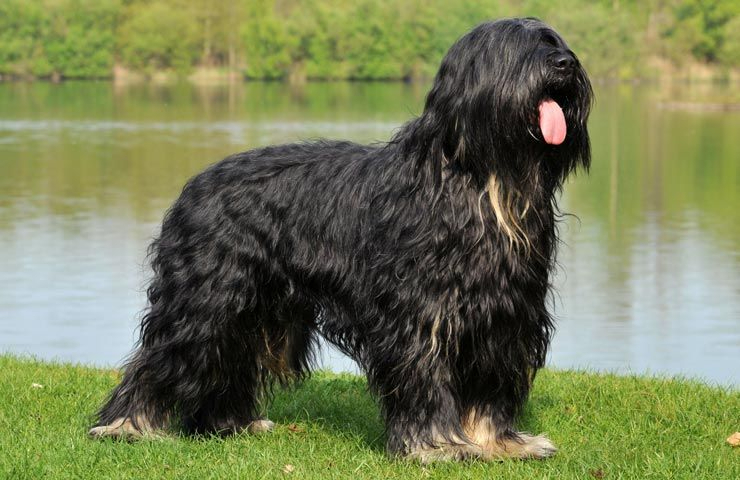Origin
The Portuguese Sheepdog, also known locally as “Cão da Serra de Aires,” originates from the mountainous regions of Portugal, especially the Serra de Aires range. Bred by local shepherds to herd sheep, cattle, and horses, this breed became renowned for its intelligence, loyalty, and resilience.
With roots dating back to the 19th century, the Portuguese Sheepdog’s lineage includes influence from breeds like the Briard. It was first officially documented in 1911 and is recognized by the Fédération Cynologique Internationale (FCI) under standard number 93. Today, it excels not only as a working dog but also as a beloved family companion.
Friendliness To Other Pets
Friendliness To Strangers
The Portuguese Sheepdog is a medium-sized dog with a sturdy and muscular build, showcasing its excellent working ability. Its coat is medium-length, soft, and slightly wavy, often compared to goat hair for its texture and protective qualities. Common coat colors include yellow, gray, brown, and black, occasionally with white markings.
Its semi-erect ears and bright, intelligent eyes give the Portuguese Sheepdog an alert and lively expression, reflecting its energetic personality. Its elegant yet athletic appearance makes it the perfect “four-legged assistant” on the farm.
Known for its remarkable athleticism and adaptability, the Portuguese Sheepdog thrives in rugged terrains. It is a natural herder, capable of long hours of work. This energetic breed excels in activities like agility training, obedience trials, and other high-intensity exercises.
Daily physical activity is essential for this breed—at least 1-2 hours of running, hiking, or interactive play are recommended to keep it healthy and happy.
The Portuguese Sheepdog is friendly, outgoing, and highly loyal to its family. Often referred to as the “smart shepherd of the farm,” it is known for forming deep emotional bonds with its owners.
It is intelligent and eager to please, making training relatively easy. However, mental stimulation is crucial to keep this active breed engaged. It gets along well with children and, when socialized properly, can live harmoniously with other pets. Its boundless enthusiasm makes it an ideal family companion.
The Portuguese Sheepdog’s coat requires regular brushing—weekly grooming is sufficient to prevent matting and remove loose fur. Its high energy levels necessitate plenty of exercise, including long walks, runs, or herding activities.
While adaptable to urban living, this breed thrives in homes with ample space for activity. Routine vet checkups and a balanced diet are essential to ensure its health and vitality.
Primary health concerns for the Portuguese Sheepdog include hip dysplasia, a common hereditary issue in medium to large breeds. Occasional skin allergies or minor eye problems may also arise.
Recommended Health Checks:
- Hip X-rays to detect dysplasia.
- Eye examinations to monitor potential vision issues.
With proper care, this breed enjoys an average lifespan of 12-14 years, making it a long-lasting companion for dedicated owners.
The Portuguese Sheepdog has a rich history intertwined with Portugal’s rural traditions. Originally serving as a trusted helper to shepherds, it played a vital role in herding and protecting livestock.
By the early 20th century, agricultural mechanization threatened the breed’s existence, but preservation efforts helped restore its numbers. Today, it is celebrated worldwide not only for its working skills but also for its intelligence, loyalty, and adaptability as a modern family pet.
